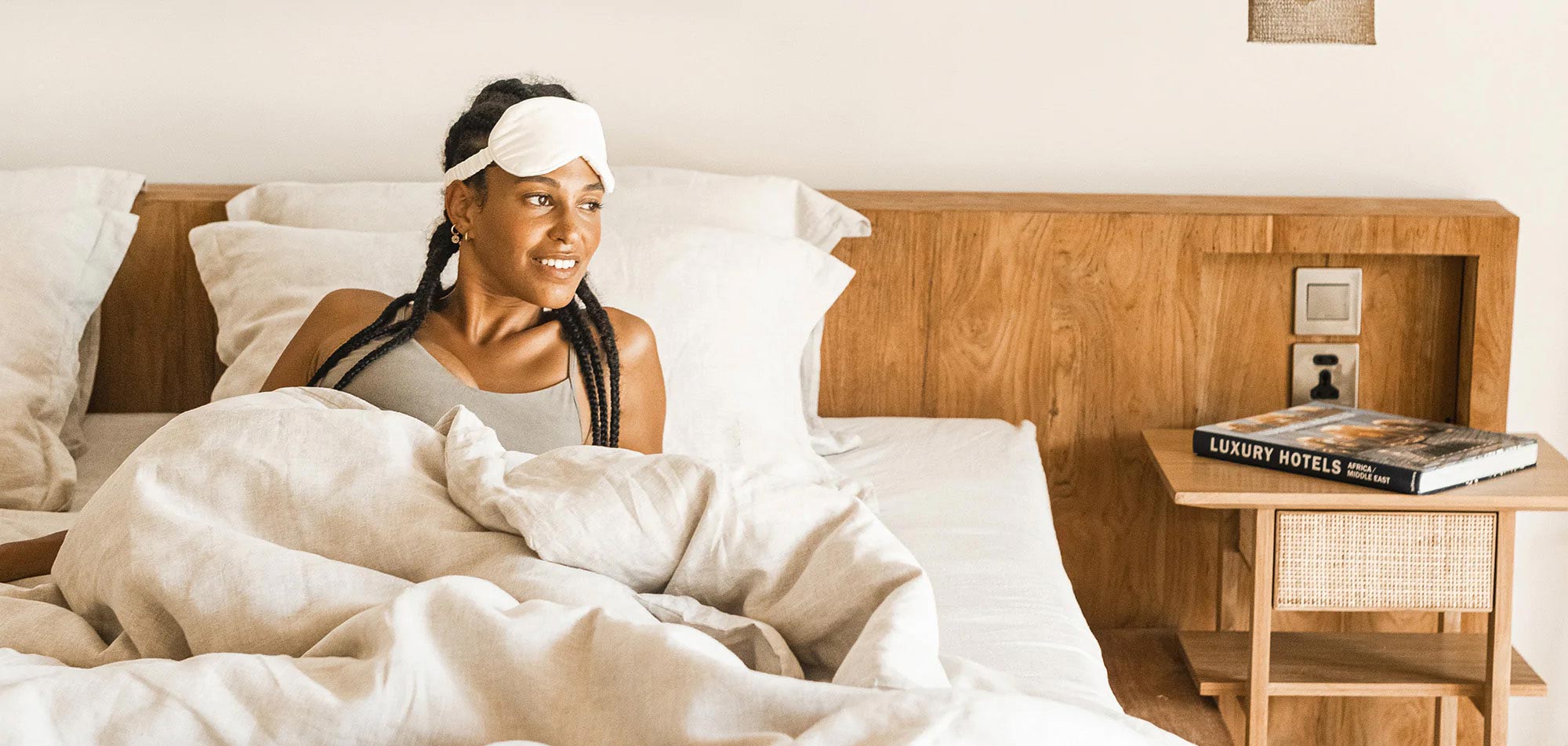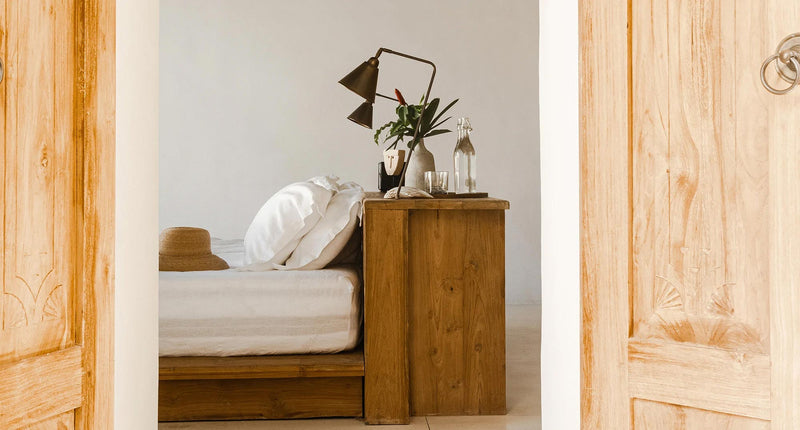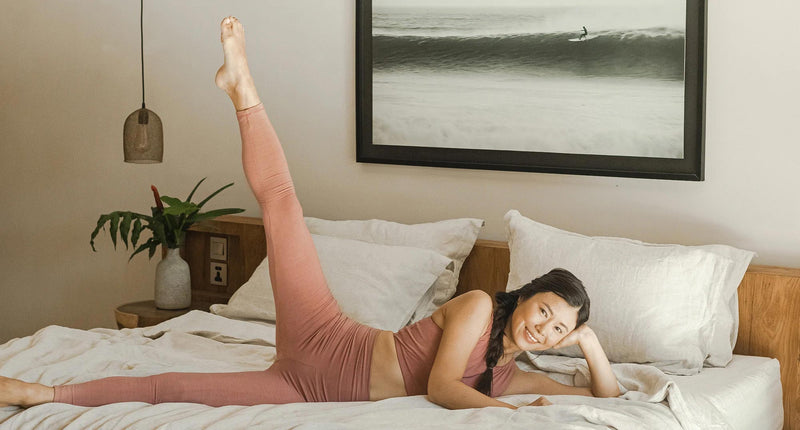Exposure to light at night-time is known to lead to health problems (see reference 1). But it's only recently discovered that the blue wavelengths of light are especially harmful in this area. Being exposed to blue light at night causes sleep problems. But the good news is that these problems can be helped with blue light filters or by decreasing your exposure to blue light.
Let's find out more about how these specific sleep problems occur and how to solve them.
The problem with blue light and melatonin
The reason that blue light at night time is harmful toward sleep is because it suppresses the secretion of melatonin. Blue light has a stronger suppressive effect toward melatonin than any other type of light (see reference 2). Melatonin is a naturally occurring hormone in the body, and can be thought of as a 'sleep hormone': melatonin levels are high at night and low during the day. It is thought that these cycling melatonin levels help keep the body's circadian rhythms on track.
Melatonin is only secreted in the dark. Any night-time light will cause a sharp decrease in melatonin secretion, and therefore result in sleep disruptions. Blue light is the worst culprit in affecting melatonin levels (see reference 2) as it causes the sharpest decline in melatonin secretion. However, be aware that any light at night will negatively impact melatonin levels - blue light simply has the strongest effect.
Blue light at night causes real problems with going to sleep
The link between blue light and melatonin is well documented, but does this actually translate into problems with people's sleep? The answer is yes, as we'll see here.
In a recent study, volunteers sat in front of two different types of computer monitor screens where one screen was twice as blue as the other. They did this right before bedtime for two weeks. The volunteers were tested for memory and skills: measures of alertness. It was found that the blue screen kept the volunteers more awake and alert (see reference 3). Immediately before bedtime is not a good time to be extra alert! Therefore, you should avoid blue light at night time and just before bedtime.
Don't banish daytime blue light - you need it!
Blue light is only bad for you at night time. During the day, blue light is actually beneficial. This is because as mentioned before, blue light promotes wakefulness and alertness. Also, blue light decreases melatonin levels, so exposure to blue light during the daytime will help strongly define your circadian rhythms (see references 1 and 3).
Natural sunlight contains plenty of blue light. Other sources rich in blue light include computer screens, LED screens, high definition TV screens and energy-saving fluorescent light bulbs. As you can see, our day to day lives contain plenty of devices rich in blue light, so the average person will easily be able to get sufficient blue light in the daytime when going about their normal life. However, those who are exposed to very little blue light will benefit from additional blue light during the day such as exposure to computer or tablet screens (see reference 3).
Blocking blue light at night time leads to better sleep
Filtering out blue light is a solution which results in improved sleep, as two studies have shown. One of these was in cataract patients, where an artificial lens which blocks blue light was implanted during cataract surgery. These patients reported significant sleep improvements two months later. These benefits included longer night time sleeping and less daytime drowsiness, and also there were fewer people who met the criteria for 'poor sleepers' afterward (see reference 4).
In another study, volunteers wore goggles during the evening which blocked blue light. They found that these people tended to have much better sleep than those who did not wear goggles (see references 1 and 3).
How can we block blue light at night time?
We know that blue light in the evening is bad for sleep. But blue light is such an integral part of our lives today, so how can we block it at night time? Aside from the invasive and difficult-to-reverse cataract surgery, there are some easy options you can try.
First of all is the blue light filtering goggles, similar to what the volunteers in the study used. These can be readily purchased and often retail for around $50 to $100. Cheaper versions are orange-tinted sunglasses, but these also block light other than just blue, making them impractical for indoor use at night time.
Some other avenues for blocking blue light at night time are:
- Limit your exposure to artificial light for at least an hour or two before bed. Obviously, you can't entirely avoid artificial light after dark since you'll still need to have adequate lighting to see. But about two hours before bedtime, shut down the computer, turn off your TV and set aside your smartphone: these generally emit more blue light than your lamps and light bulbs.
- Recharge any electronic devices in a separate room from where you sleep. Some phones have bright LEDs indicating when they are charging, or screens which light up when they're done charging. If that occurs during the night it will be counterproductive to your sleep. Keep such devices in a different room overnight.
- Use small night lights if you must have light in your bathroom or your bedroom at night to make your way to the bathroom. If you instead switch on the main lights, your melatonin secretion will be sharply suppressed, leading to wakefulness. Use the dimmest night light possible that still allows you to find your way.
- Be savvy about which types of light bulbs you use. Think about which lighting you use predominantly in the evening, for example your living room lights and your reading lamp. For those particular light sources, consider changing to a more yellow (and less blue) bulb. Energy-efficient fluorescent light bulbs tend to emit quite a lot of blue light, but they are usually available in more than one brightness option. If you pick the warmest, yellowest or softest end of the range, you can be assured it will emit less blue light than the brightest, whitest or bluest end of the range. Remember, only change out those bulbs which tend to be restricted to evening usage. You still need blue light during the daytime.

Conclusion
To get a better night's sleep, there is a surprisingly easy solution: avoid blue light in the evenings and at night. As we also learned, it's equally important to make sure that you do get enough blue light in the daytime.
And of course, if you're experiencing sleep difficulties, this might be a good time to consider a new and more comfortable mattress. Latex is one of the most relaxing and comfortable mattress materials available today, so a new latex mattress and latex pillow can go a long way to helping you sleep better.
References:
http://www.health.harvard.edu/newsletters/Harvard_Health_Letter/2012/May/blue-light-has-a-dark-side/










